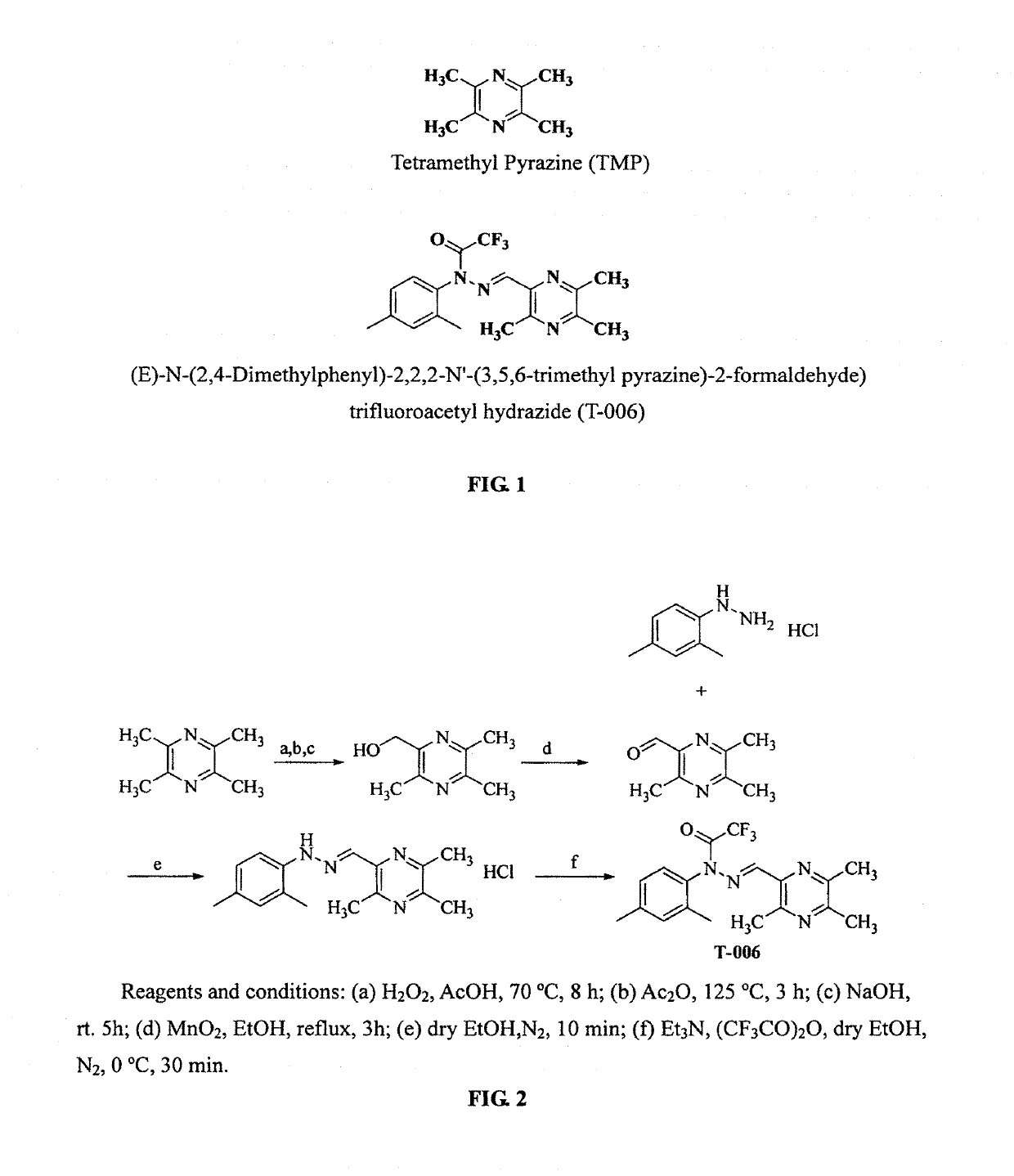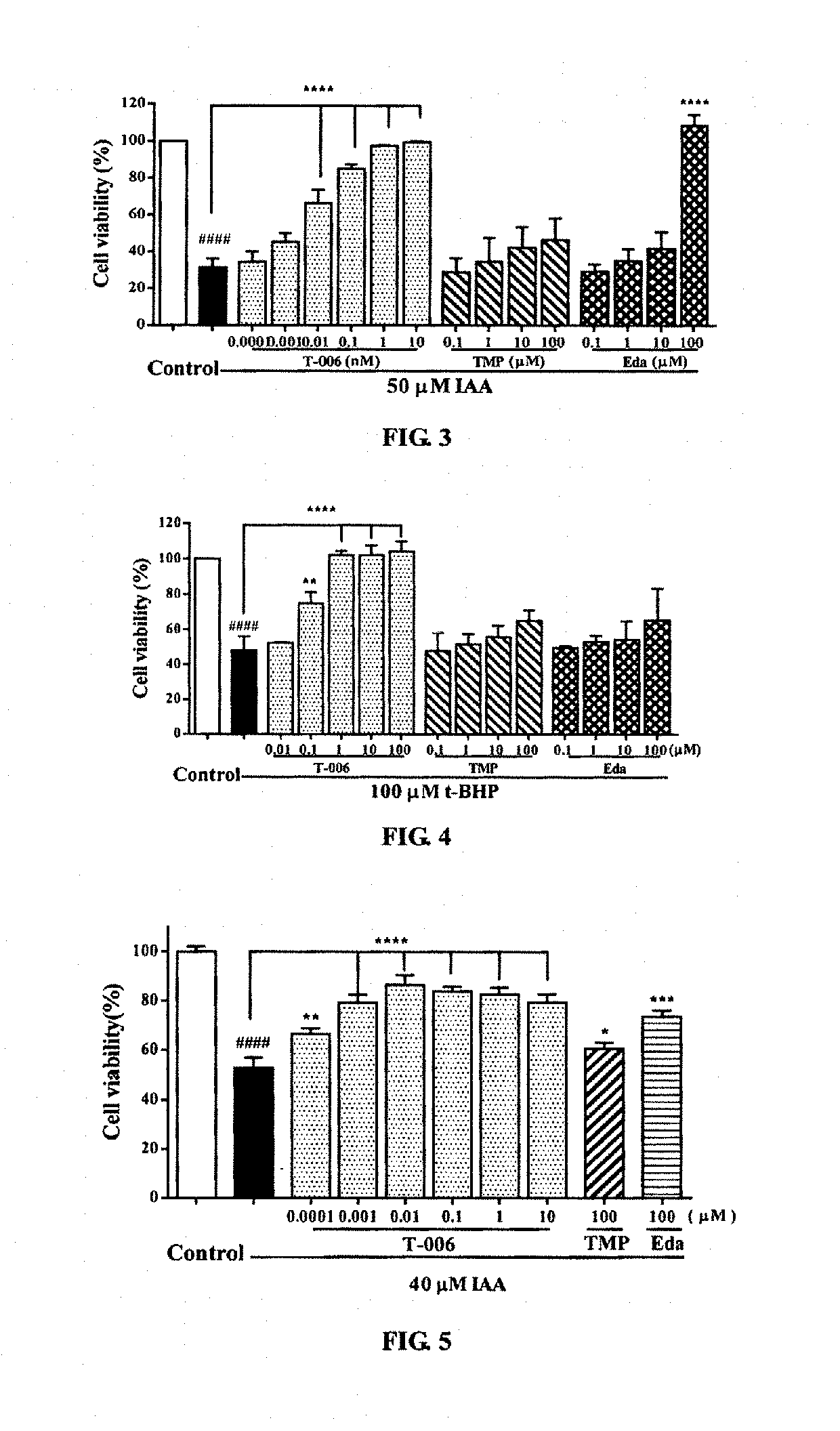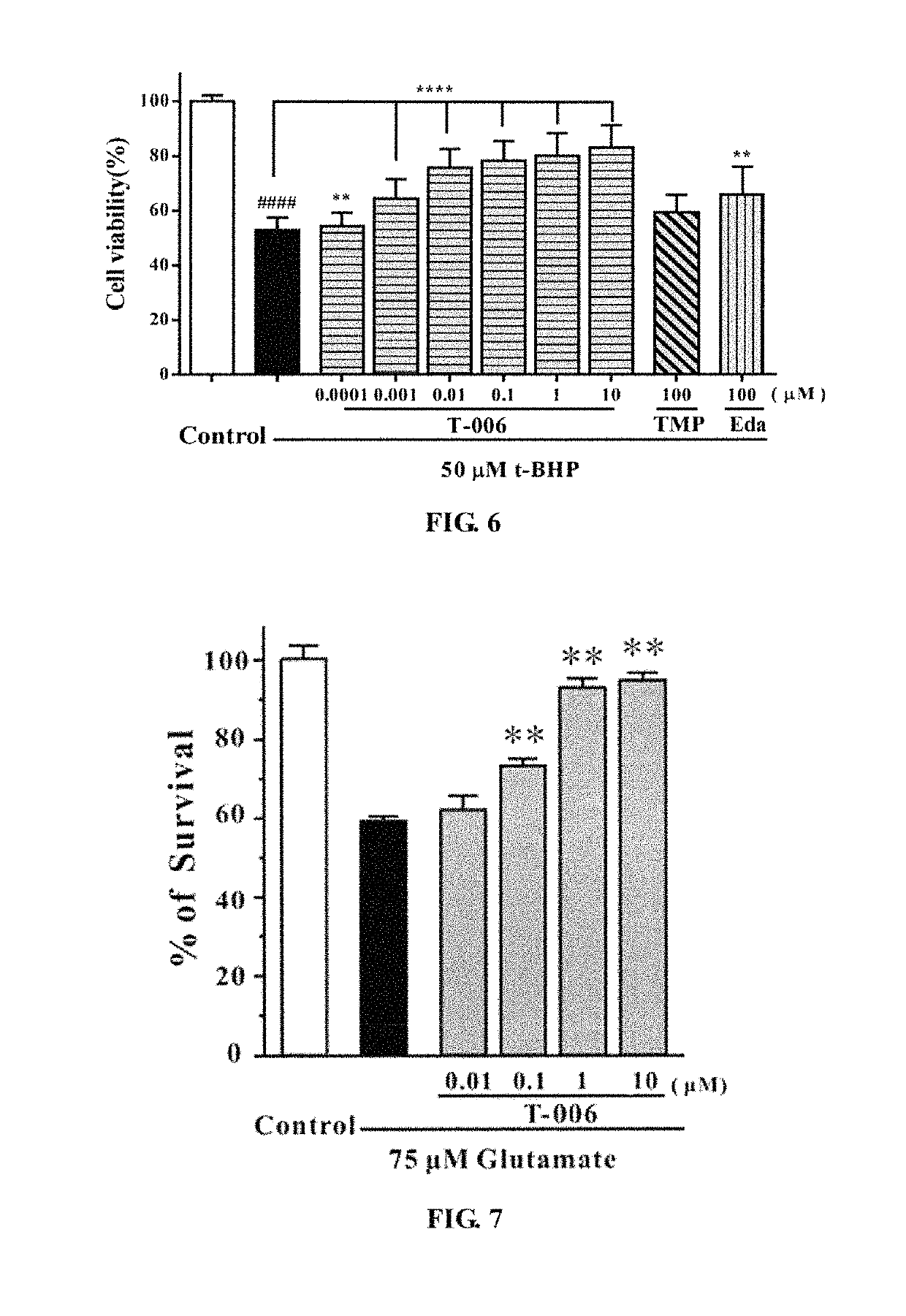Trifluoroacetyl hydrazide compounds and methods of preparation and uses thereof
a technology of trifluoroacetyl hydrazide and compound, applied in the field of medicine, can solve the problems of no drug that can be used effectively to reverse cognitive impairment, and temporarily alleviate symptoms, so as to improve free radical scavenging activity, improve cell protection effect, and enhance mef2 activity
- Summary
- Abstract
- Description
- Claims
- Application Information
AI Technical Summary
Benefits of technology
Problems solved by technology
Method used
Image
Examples
example 1
Synthesis of Compound T-006 (FIG. 2)
[0054]In 10 mL of methanol was dissolved 2,4-dimethylphenylhydrazide hydrochloride (1.72 g, 10 mmol). To the solution, 3,5,6-trimethylpyrazine-2-carbaldehyde (1.50 g, 12 mmol) was added with an ice-bath under the protection of N2. After the mixture was stirred for 10 min, a lot of brick red precipitate showed and the reaction was then complete. The mixture was filtered through a suction funnel, and the brick red solid was transferred to a vacuum oven to be dried for using directly in the next reaction step of the reaction. The red brick intermediate (3.04 g, 10 mmol) was dissolved in 25 mL of methanol, and 1.68 ml of anhydrous triethylamine and 1.7 ml of trifluoroacetic anhydride were added respectively with an ice-bath under the protection of N2, and the reaction was run for 30 minutes. The reaction was monitored by TLC till completion. The resulting material was extracted with Ethyl acetate, dried over anhydrous Na2SO4, separated by a silica gel...
example 2
Protective Effects of T-006 on IAA-induced PC12 Cell Injury. (FIG. 3)
[0055]PC12 cells were seeded on a 96-well plate and inoculated in a 5% CO2 incubator at 37° C. for 24 hours. Then 100 μl of IAA (50 μM) was added for induction for 2 hours. Two hours later, the medium was aspirated, and each of the compounds (T-006, TMP, Edaravone) was added and the cells were cultured for 24 hours. After 24 hours of incubation, MTT was added to each well. Four hours later, the absorbance was measured at 570 nm using a microplate reader. The results were shown in FIG. 3: T-006 had a significant protective effect on IAA-induced PC12 cell injury, and was much stronger than that of the parent compound TMP and Edaravone. Compared with the IAA group, ****P<0.0001.
example 3
Protective Effect of T-006 on t-BHP-induced PC12 Cell Injury (FIG. 4)
[0056]PC12 cells were seeded on a 96-well plate and inoculated in a 5% CO2 incubator at 37° C., for 24 hours. Then each compound (T-006, TMP, Edaravone) was added in different concentration gradients to pre-incubated for 2 hours. Two hours later, the medium was aspirated, and 100 μl t-BHP (100 μM) was added to each well except those of the control group, then the cells were cultured in an incubator for 24 hours. Four hours later, MTT was added into each of the wells, and the absorbance was measured at 570 nm using a microplate reader. The results were shown in FIG. 4: T-006 had a significant protective effect on t-BHP-induced PC12 cell injury, and the effect is much stronger than that of the parent compound TMP or Edaravone. Compared with t-BHP group, ****P<0.0001.
PUM
| Property | Measurement | Unit |
|---|---|---|
| pH | aaaaa | aaaaa |
| wavelength | aaaaa | aaaaa |
| pH | aaaaa | aaaaa |
Abstract
Description
Claims
Application Information
 Login to View More
Login to View More - R&D
- Intellectual Property
- Life Sciences
- Materials
- Tech Scout
- Unparalleled Data Quality
- Higher Quality Content
- 60% Fewer Hallucinations
Browse by: Latest US Patents, China's latest patents, Technical Efficacy Thesaurus, Application Domain, Technology Topic, Popular Technical Reports.
© 2025 PatSnap. All rights reserved.Legal|Privacy policy|Modern Slavery Act Transparency Statement|Sitemap|About US| Contact US: help@patsnap.com



